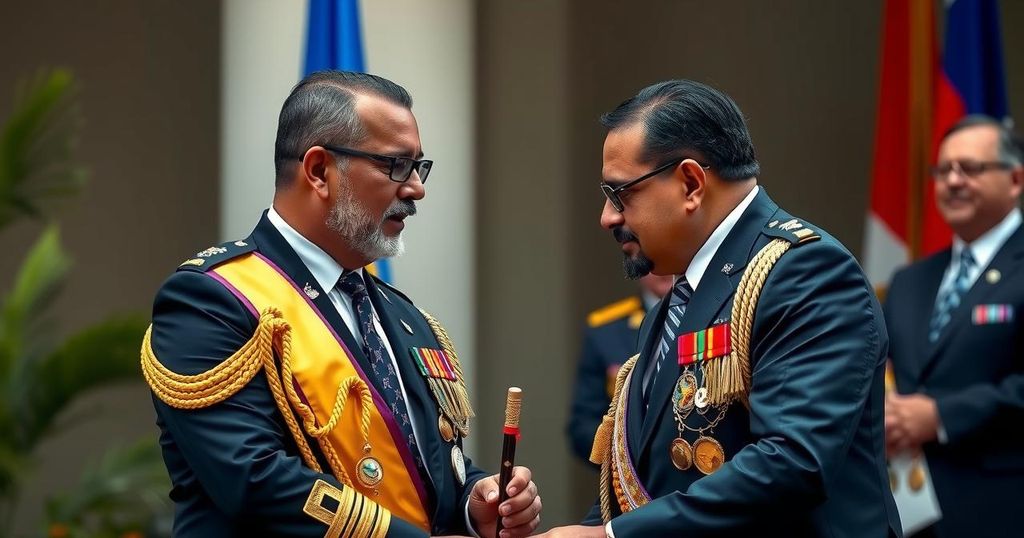Costa Rica Honors El Salvador’s President Bukele for Violence Reduction

Costa Rica awarded President Nayib Bukele of El Salvador its highest diplomatic honor for successfully reducing gang-related violence. Bukele’s methods, involving the suspension of constitutional rights, have garnered both praise and criticism, highlighting differing approaches between him and Costa Rican President Rodrigo Chaves, who faces escalating homicide rates. The recognition and ongoing security issues reflect broader debates on governance and civil rights in the region.
Costa Rica has awarded its highest diplomatic honor to El Salvador’s President Nayib Bukele in recognition of his successful efforts to combat violence stemming from gang activity over the past two years. Bukele’s strategies include the suspension of certain constitutional rights, which has prompted debates within Costa Rica, a nation known for its democratic stability. Despite criticisms, Bukele enjoys high approval ratings and public support, having been recently re-elected for a second term. In contrast, Costa Rican President Rodrigo Chaves faces significant challenges, including soaring homicide rates due to the surge in drug trafficking, as Costa Rica serves as a transit hub for cocaine aimed at international markets. Chaves commended Bukele’s accomplishments and stated, “El Salvador’s rescue from those nefarious claws is also helping the peace in our region.” While he expresses admiration, Chaves is also aware that his own governmental power is constrained as he does not command a majority in Congress. As violence continues to threaten regional security, the dynamics between Bukele and Chaves reflect broader concerns about governance, civil rights, and the efficacy of harsh measures against organized crime in pursuits of democratic principles. The leaders are scheduled to visit one of Costa Rica’s largest prisons, underscoring the urgent challenges facing both nations in their fight against crime.
The article centers on the diplomatic recognition of President Nayib Bukele of El Salvador by Costa Rica as a result of his initiatives aimed at reducing violence and gang activity. Over the past two years, Bukele has enforced strong measures, including the suspension of certain constitutional rights, resulting in a significant drop in violence. In comparison, Costa Rica faces its own challenges with increasing homicide rates largely driven by drug trafficking, posing questions on governance and strategies in tackling crime across Central America. The recognition reflects both the challenges and ideological differences present in the two countries’ approaches to security, democratic stability, and the governance of civil rights.
In conclusion, Costa Rica’s conferral of its highest diplomatic honor upon President Nayib Bukele highlights a contrasting approach to crime and security between the two neighboring nations. While Bukele’s aggressive tactics seem effective in combating gang violence, they have sparked debate over civil rights and due process. Conversely, President Chaves’ struggles underscore the ongoing security challenges and political limitations faced in Costa Rica, as both leaders navigate the complex landscape of organized crime and democracy in Central America.
Original Source: abcnews.go.com






